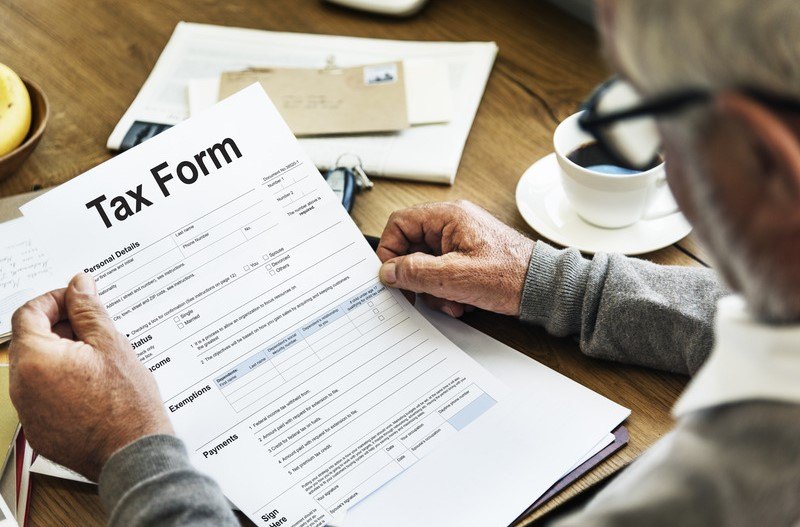
What You Need to Know About Foreign Property Tax in Spain: A Comprehensive Guide
Nida Zafar | · 13 min. read
- Table of contents
- The Tax Residency Status in Spain
- 1. Property Purchase Taxes in Spain
- 2. Annual Property Taxes
- 3. Rental Income Tax
- 4. Capital Gains Tax
- 5. Wealth Tax
- 6. Plusvalía Municipal
- Double Taxation Treaties
- Filing and Payment Deadlines
- Final Thoughts
If you're thinking about buying a property in Spain, understanding the foreign property tax in Spain is essential. Spain has long been a hotspot for foreign property buyers, from retirees to investors seeking sunny escapes or rental income. However, while owning a home in Spain can be a dream, tax obligations can turn it into a potential headache if not handled correctly.
You might be surprised at how complex Spain’s tax system is for foreign property owners. Taxes can apply whether you live in the property, rent it out, or even leave it vacant. To avoid unexpected costs or penalties, you need to understand exactly what taxes are due and when.
Let’s dive into the key tax implications for foreigners investing in Spanish real estate and how they affect you.

The Tax Residency Status in Spain
In Spain, your tax residency status determines your tax obligations. You’re considered a tax resident if you spend more than 183 days in Spain during the calendar year. It doesn’t have to be consecutive; all those days add up. Owning property alone doesn’t make you a resident, but it does trigger tax responsibilities, whether you're living there or not.
Criteria to Determine Tax Residency
Spain looks at more than just the days you spend in the country. If your main base of economic activities or personal interests is in Spain, you might be classified as a resident, even if you spend fewer than 183 days there. This can include having family, employment, or significant business ties in Spain.
Tax Implications for Residents vs. Non-Residents
For tax residents, Spain taxes global income, which means earnings from any source, anywhere in the world. Non-residents, on the other hand, are only taxed on Spanish-sourced income.
However, even as a non-resident, there are still important taxes to consider, like imputed income tax on properties that aren’t rented, and rental income taxes if you lease your property. The tax rate for EU residents is typically more favourable compared to non-EU residents.
1. Property Purchase Taxes in Spain
It is important for you to understand the foreign property tax in Spain if you want to invest in real estate. Spain's property tax system varies depending on whether you're buying a resale or a new-build property, and whether you're a resident or a non-resident.
Let’s explore the key taxes that apply when purchasing a property in Spain, particularly in popular areas like Marbella.
Transfer Tax (Impuesto de Transmisiones Patrimoniales - ITP)
What it is: This tax is an important aspect of foreign property tax in Spain. It is applied when purchasing a resale property. It's one of the largest expenses associated with buying a second-hand home in Spain.
Rates: The ITP rate ranges between 6% to 10%, depending on the region. In Marbella, located in Andalusia, the flat rate is 7% for all resale properties. However, other regions like Catalonia charge a higher rate of 10%.
How it's calculated: ITP is applied to the higher value between the cadastral reference value and the declared sale price. For example, if the property in Marbella is sold for €500,000 but the cadastral value is €600,000, the tax is calculated on €600,000.
Who pays: The buyer is responsible for paying this tax within 30 days of signing the purchase deed.
Value Added Tax (IVA) and Stamp Duty (AJD)
What it is: For new-build properties, buyers are subject to Value Added Tax (IVA) instead of ITP. Stamp Duty (AJD) is also applicable.
IVA Rates: The standard rate for new properties is 10% of the purchase price. In addition to IVA, you'll pay AJD, which ranges from 1.5% to 2% depending on the region.
For example, buying a new villa in Marbella for €500,000 would result in €50,000 in IVA and approximately €7,500 to €10,000 in AJD.
2. Annual Property Taxes

Impuesto sobre Bienes Inmuebles (IBI)
What it is: The IBI is an annual property tax applied to all real estate owners, both residents and non-residents. You must also consider this tax when working on foreign property tax in Spain. This tax funds local services like road maintenance and waste collection.
Rates in Marbella: The IBI rate in Marbella typically ranges between 0.4% and 1.1% of the cadastral value, depending on the location and property type. Properties in prime areas like Marbella tend to be at the higher end of the scale.
How it's calculated: The tax is based on the property’s cadastral value, which is often lower than its market value. For a property with a cadastral value of €300,000, the IBI could be between €1,200 and €3,300 annually, depending on the specific location.
Imputed Income Tax
What it is: As a non-resident property owner in Spain, you are subject to foreign property tax in Spain, even if your property remains unoccupied. The Spanish tax authorities assume that your property could generate rental income, and they tax you accordingly through imputed income tax.
Rates: For EU/EEA residents, the imputed income is taxed at 19%, while non-EU residents face a higher tax rate of 24%. This is a core part of the foreign property tax in Spain, ensuring non-resident owners contribute, even if the property isn’t rented out.
How it's calculated: The taxable amount is generally 1.1% to 2% of the property’s cadastral value, depending on how recently the cadastral value was updated.
3. Rental Income Tax
When you rent out your property in Spain, you are liable to pay rental income tax. The rate depends on whether you are an EU/EEA resident or a non-EU resident:
- For EU/EEA residents, the tax rate is 19% of the net rental income. This means you can deduct allowable expenses such as maintenance costs, property management fees, and utilities. These deductions can help reduce your taxable income, ensuring you pay tax only on the profit.
- For non-EU residents, the tax rate is 24% of the gross rental income. Unfortunately, if you’re a non-EU resident, you won’t be able to deduct any expenses. This means you’ll be taxed on the total rental income, making the tax burden heavier.
If you plan to rent out your property, it’s important to file tax returns quarterly using Modelo 210. This ensures you stay compliant with Spanish tax laws and avoid any fines. Understanding foreign property tax in Spain is crucial to managing rental income efficiently and legally.
4. Capital Gains Tax
When you sell a property in Spain, you’ll be liable for capital gains tax on the profit made from the sale. This tax applies whether you’re an EU resident or a non-EU resident:
EU/EEA residents are taxed at 19% of the capital gain, while non-EU residents are taxed at a higher rate of 24%.
The capital gain is calculated by subtracting the original purchase price and any expenses related to the improvement of the property (such as renovations) from the sale price. The Spanish tax authorities will require proof of these expenses, so make sure to keep all receipts. If you’re selling property as part of foreign property tax in Spain, understanding how capital gains are taxed will help you plan for potential costs.
5. Wealth Tax
Spain imposes a wealth tax on property owners if the total value of their assets in Spain exceeds €700,000. This tax is progressive, meaning the more your property is worth, the higher the tax rate:
The rates start at 0.2% and can go as high as 2.5% for properties valued over €10 million.
If your property in Spain exceeds the wealth tax threshold, you’ll need to file an annual return to declare the value of your property. This is an essential part of foreign property tax in Spain, especially for high-net-worth individuals. Ensuring you stay compliant with wealth tax requirements will help you avoid penalties while protecting your investment in Spanish real estate.
6. Plusvalía Municipal
The Plusvalía Municipal is a significant tax to consider when selling property in Spain. It is a municipal tax levied on the increase in the land value of the property during your ownership. Unlike other taxes that focus on the property's overall value, this one specifically targets the value of the urban land on which the property is built.
How it works: The tax applies to the increase in the land's value between the time you bought the property and the time you sell it. The amount is calculated based on the cadastral value (a value set by local authorities) and the number of years you have owned the property. Generally, the longer you’ve owned it, the higher the Plusvalía tax.
Who pays: Usually, the seller is responsible for paying this tax. However, in some cases, it can be negotiated for the buyer to pay it.
Regional variations: Each municipality sets its own rates, so the amount can vary depending on where your property is located. This makes it important to consult with a local tax expert to determine how much Plusvalía Municipal tax you’ll owe when selling.
You must have knowledge of this tax when dealing with foreign property tax in Spain, as it can significantly impact the overall profit from a property sale. Being aware of this obligation ensures you won't be caught off guard by unexpected costs.
7. Inheritance Tax (Impuesto sobre Sucesiones y Donaciones)
When you inherit property in Spain, inheritance tax applies, regardless of whether you're a resident or a non-resident. This tax is part of the overall foreign property tax in Spain and can significantly affect your inheritance, depending on the property's value and the relationship between the inheritor and the deceased.
What it is: Inheritance tax in Spain is levied on the transfer of property upon the owner's death. The amount payable depends on the value of the property and the relationship between the deceased and the beneficiary. The closer the relationship (e.g., spouse or child), the lower the tax rate and higher the exemptions. Distant relatives or non-family members generally face higher rates.
Who pays: The heir or beneficiary is responsible for paying inheritance tax. As a foreigner inheriting property in Spain, you are subject to this tax if the property is located in Spain, even if you're not a Spanish resident.
Rates and exemptions: Inheritance tax rates in Spain range from 7.65% to 34%, depending on the region and the value of the inheritance. Additionally, different autonomous regions offer varying levels of exemptions, and in some cases, spouses and children may benefit from reduced tax rates or even full exemptions, depending on the property's value and location.
Residents vs. Non-residents: Spanish residents generally receive larger allowances, while non-residents (including non-EU citizens) face fewer exemptions and higher rates.
For example, in some regions, there is a €700,000 exemption for the spouse or child of the deceased, but non-residents may not qualify for such generous allowances.
Regional Variations: Spain's autonomous regions have the authority to modify inheritance tax laws. As a result, the tax rates and exemptions can vary widely depending on where the property is located.
For instance, Andalusia offers substantial reductions for close relatives, while Catalonia and Madrid have different tax structures and allowances.
Double Taxation Treaties
Owning property in Spain can sometimes lead to concerns about being taxed in both Spain and your home country, particularly if you earn rental income or sell your property. Double Taxation Treaties (DTAs) are designed to prevent this by ensuring you aren’t taxed twice on the same income.
What they do: DTAs allow you to avoid paying tax on the same income in two countries. For example, if you pay tax on rental income in Spain, you can often offset this against taxes you would owe in your home country, depending on the terms of the treaty.
How they work: These treaties typically allow you to deduct the taxes you’ve paid in Spain from the taxes you owe in your home country. This prevents you from being taxed twice on the same income, which can be a relief for those investing in foreign property.
Which countries have DTAs with Spain: Many countries have double taxation agreements with Spain, including the UK, the US, and most European nations. It’s crucial to check whether your country has such a treaty in place to take full advantage of the benefits.
Double Taxation Treaties are a valuable tool for managing foreign property tax in Spain, especially if you plan to rent or sell your property and want to avoid being taxed twice. Consult a tax advisor to make sure you are benefiting from any applicable agreements.
Filing and Payment Deadlines

When handling your foreign property tax in Spain, you must submit annual and quarterly filings to the Agencia Tributaria, Spain’s official tax authority. This agency is responsible for overseeing all tax-related matters, including rental income tax and imputed income tax.
If you own property in Spain, whether it’s rented out or left vacant, you must stay on top of these obligations.
- Annual declarations: Non-residents must file Form 210 for imputed income every year, even if the property is not generating any rental income. This ensures compliance with Spanish tax laws.
- Quarterly filings for rental income: If your property is rented out, you’ll need to file a tax return quarterly. You have 20 days following the end of each quarter (January, April, July, and October) to declare and pay the tax owed on your rental income.
Final Thoughts
Being diligent about filing taxes on time is an essential part of managing your foreign property tax in Spain. Not only will this help you avoid unnecessary fines, but it also ensures that your investment remains financially sound. As tax laws can change, staying informed is key.
Consider working with a tax advisor to ensure you meet every obligation and maximize any deductions available to you. This proactive approach to handling foreign property tax in Spain will help you avoid surprises and ensure your property investment thrives in the long term.
Spain offers a variety of tax benefits specifically designed for retirees, which can make your financial planning smoother and more efficient. To explore how you can benefit from these, check out Tax Benefits for Retirees in Spain.